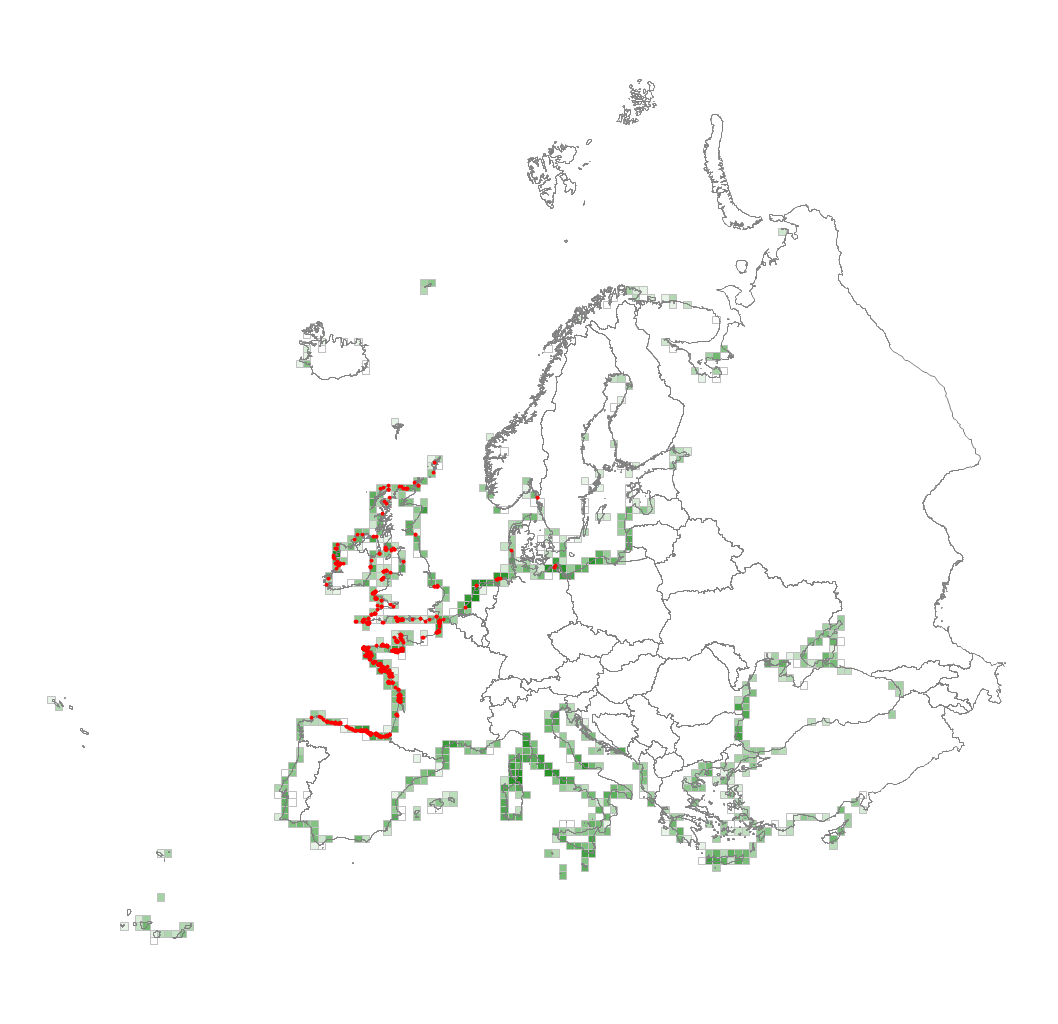N31 Atlantic and Baltic rocky sea cliff and shore
Cliffs, together with vegetated crevices, ledges and cliff-tops along the coasts of the Baltic Sea, the North Sea and the Atlantic Ocean south to middle Portugal. Exposed bedrock dominates the habitat, and its very variable composition and structure determine the character of available surfaces. The height and slope of the cliffs influence the input of salt spray which, on exposed coasts, can be very high close to the sea. This combination of local climatic and topographic conditions determines the often strong zonation of crevice vegetation, grasslands and heaths found on the cliffs, with regional climate also affecting the flora. Nesting seabirds also add a distinctive nutrient-demanding element to the flora on their guano.
Chytrý M., Tichý L., Hennekens S.M., Knollová I., Janssen J.A.M., Rodwell J.S. … Schaminée J.H.J. (2020) EUNIS Habitat Classification: expert system, characteristic species combinations and distribution maps of European habitats. Applied Vegetation Science 23: 648–675. https://doi.org/10.1111/avsc.12519
Version 2025-10-03, https://doi.org/10.5281/zenodo.16895007.
For the official presentation of the EUNIS Habitat Classification from the European Environment Agency, please see: EUNIS Terrestrial Habitat Classification 2021. The FloraVeg.EU presentation may show modifications and partial updates to the habitat classification.

4.jpg)
5.jpg)
6.jpg)
7.jpg)
8.jpg)
10.jpg)
1.jpg)
2.jpg)